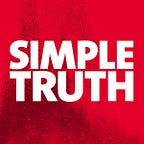Think like a kid and enjoy the ride.
Three lessons your company can learn from Kickstarter, Uber and Divvy
The Executives’ Club of Chicago recently brought together Charles Adler, Andrew Macdonald and Elliot Greenberger to talk about the new sharing economy. Adler is the co-founder of Kickstarter, Macdonald is a regional general manager for Uber and Greenberger is the general manager of Divvy.
Adler began by saying the term “disrupter” is silly because it assumes there’s a five-year-old brat kicking an incumbent in the shin. “Being disruptive?” he said. “Not a nice term.”
Good to know. Here’s some other stuff.
Lesson #1: Sometimes it pays to think like a kid and ask “why?”
Many startups began because someone, feeling powerless and frustrated, asked, “But why?”
If I have this great idea, why can’t I get it funded? Why isn’t there an alternative to cabs yet? Why can’t bicycles be like library books?
It’s how great ideas are born.
Lesson #2: The marketplace is an expanding pie.
Critics say the shared economy is unfairly taking business away from traditional economy. Adler isn’t so sure. “It’s not a fixed pie. It’s an expanding pie.”
Greenberger agreed. 60% of Divvy members already own a bike. The other 40%? He says using Divvy might get them to go into a bike shop to buy a helmet or even a new bike.
And what about the Chicago Transit Authority? Greenberger acknowledged that Divvy takes fares away from the CTA, but it also delivers fares. Because now riders can get to the train with Divvy. Or take the train to get to Divvy. It’s the wonder of multi-modal transportation.
As for Uber, is it robbing taxi drivers of fares? Macdonald argued that Uber is going into taxi deserts, giving rides that are 30% to 50% cheaper than a taxi, serving people who may have otherwise stayed at home instead of going to that out-of-the-way restaurant. Which, by the way, is good for the restaurant business.
Macdonald said that Uber creates jobs — 50,000 a week globally. And they consider their customers, too. Uber helps the economy by offering flexible, online-trainable, income-producing work for people between jobs or who need full-time or part-time work.
Lesson #3: Today’s weird is tomorrow’s normal.
What’s super-weird today (an app for sharing leftover food with strangers, for example) might seem normal tomorrow. What will have staying power? “The bigger the problem you’re fixing, the less of a fad it will be,” Adler said.
Bonus lesson: Enjoy today.
Adler mentioned his children and how they, like all kids, can’t wait to grow up. And adults? They often yearn to be young again. The grass is always greener.
It’s the same way in the marketplace. Startups want to grow up and be big. Big corporations want to be young. So wherever your company currently is, remember to appreciate its current state.
Hey.
Are you an artist? Creative type? The Lake FX Summit is happening from April 16 to 19 in Chicago. It’s the region’s largest free conference for artists, creatives and entrepreneurs. Details here.
Hey 2.
We’re presenting at Lake FX on Saturday, April 18 at the Chicago Cultural Center. See how great companies connect their brand to every aspect of their business. Puck drops at 3:00 p.m. Come on over.
Hey 3 (this is the last one, we swear).
Dig the post? Sweet. Care to recommend it? Thanks.
